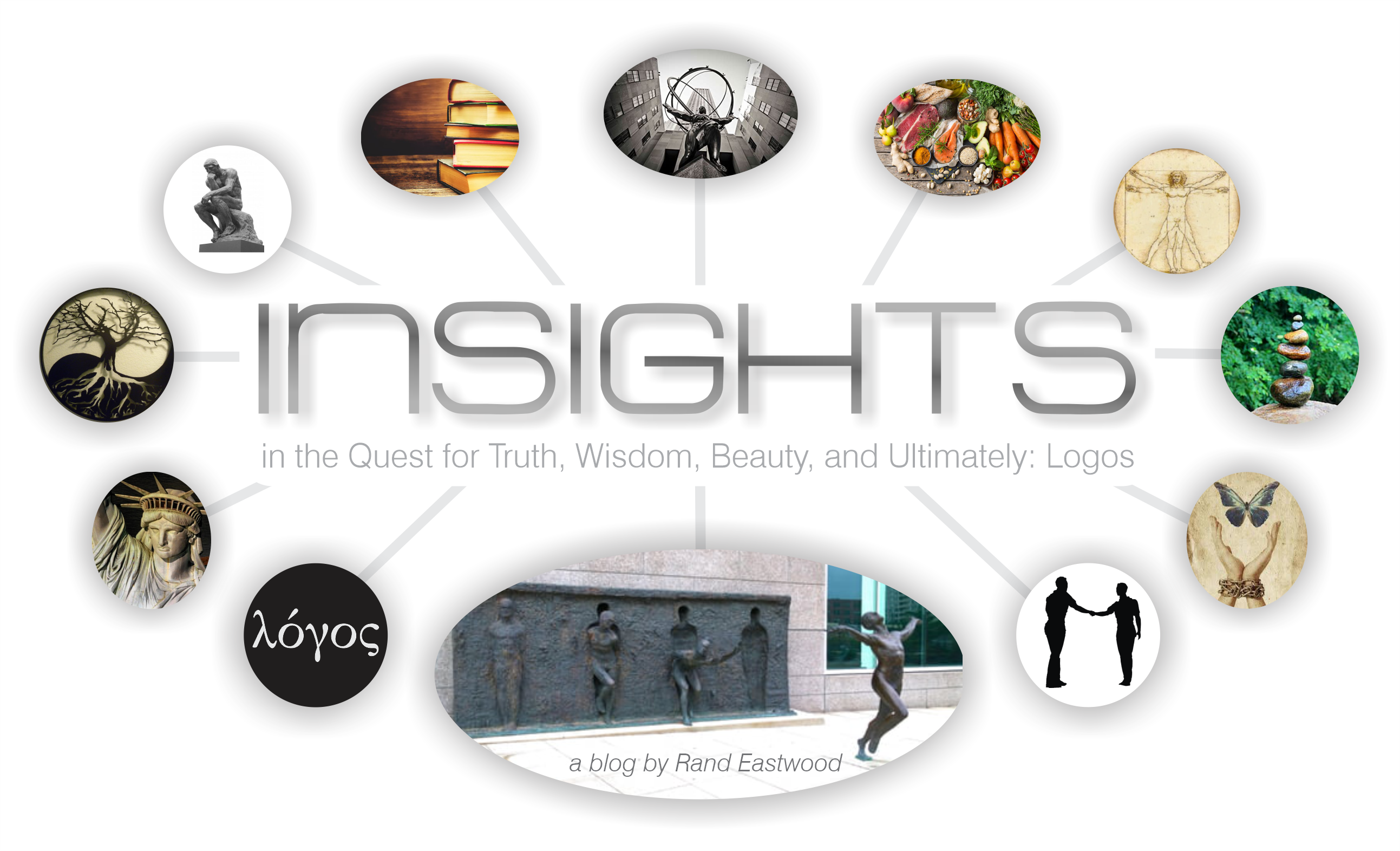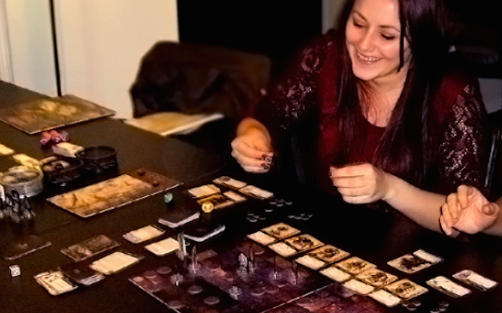Whenever I participate in games or sporting activities, I try to focus on the ultimate purpose of experiencing happiness and enjoying the activity, rather than the secondary objective of winning the game.
Even though we know that we experience happiness and enjoyment though mental and/or physical exercise, quality time spent with friends and/or family, taking on a challenge, the satisfaction and camaraderie of a team effort, learning and/or experiencing something new, doing the best we can do—or even simply having fun and forgetting ourselves and our problems for a little while—it’s still really easy to slip into the mindset of focusing on the secondary objective: winning the game.
When we focus on the competition and the winning, rather than the fun and the experience, we make it much more difficult—if not impossible—to enjoy the activity, and likely ruin it for everyone else involved too. After all, nobody enjoys playing with a “poor sport” or a “sore loser.” Those who are focused on winning above all else typically get overly upset and angry when they’re not winning, and then nobody enjoys the game itself.
Thus, the game becomes rather pointless, as the ultimate purpose—experiencing happiness, and enjoying the activity—gets relegated to the sidelines in favor of the thrill of victory (or, just as likely, the agony of defeat). Obviously, the agony of defeat is no fun, and the thrill of victory is only shared by half (or less) of the participants, and is extremely short-lived, compared to the fun and happiness everyone would have experienced and fondly remembered for a lifetime had the focus been on the proper objective.
In his book Finding Flow: The Psychology of Engagement with Everyday Life, author and psychology professor Mihaly Csikszentmihalyi touches on this:
“These examples suggest what one needs to control attention. In principle any skill or discipline one can master on one’s own will serve: mediation and prayer if one is so inclined; exercise, aerobics, martial arts for those who prefer concentrating on physical skills. Any specialization or expertise that one finds enjoyable and where one can improve one’s knowledge over time. The important thing, however, is the attitude toward these disciplines. If one prays in order to be holy, or exercises to develop strong pectoral muscles, or learns to be knowledgeable, then a great deal of the benefit is lost. The important thing is to enjoy the activity for its own sake, and to know that what matters is not the result, but the control one is acquiring over one’s attention.”
In other words, controlling one’s attention—focusing on the experience, rather than the potential result—is key to experiencing happiness and enjoying life.
Success Isn’t About What You Do, But Who You Are
In his 2001 TED Talk entitled The Difference Between Winning and Succeeding, renowned teacher and ten-time NCAA champion basketball coach John Wooden discusses the idea that winning is not the priority; rather, succeeding as a person, succeeding in life, is what counts:
“I coined my own definition of success, which is: peace of mind attained only through self-satisfaction in knowing you made the effort to do the best of which you’re capable. I believe that’s true. If you make the effort to do the best of which you’re capable, to try and improve the situation that exists for you, I think that’s success. And I don’t think others can judge that. I think it’s like character and reputation. Your reputation is what you are perceived to be; your character is what you really are. And I think that character is much more important than what you are perceived to be. You’d hope they’d both be good, but they won’t necessarily be the same.”
And the following statement by entrepreneur, author, and motivational speaker Jim Rohn echoes that of coach John Wooden:
“If you want to have more, you have to become more. Success is not something your pursue. What you pursue will elude you; it can be like trying to chase butterflies. Success is something you attract by the person you become. For things to improve, you have to improve. For things to get better, you have to get better. For things to change, you have to change. When you change, everything changes for you.”
In the context if these statements, I would say that winning falls under the category of reputation, or who you are perceived to be—whereas doing the best you are capable, and trying to improve falls under character, or who you really are. So focusing your attention on enjoyment of the activity, and being the best you can be, and perpetual growth and improvement, are the traits of true success, not simply winning the game. And I think it’s fair to say that if you do pursue the character traits, focus on being the best you can be, and enjoying the activity for the sake of the activity—you’ll likely find you are even winning more often, too!
It’s The Same In Business
The simple misfocus of our attention in games and sports—from enjoying the activity and doing the best we can do, to winning above all else—to me parallels a similar misfocus I’ve observed in the business world: companies focusing on making money, rather than on creating value and serving people.
The ultimate purpose of a company is not—contrary to popular belief—to make money; rather, its ultimate purpose is to create value and serve people. Money, or profit, is merely one tool (of many) that can be used to measure or gauge how well or effectively the company is performing its proper functions.
So, whenever you hear the leaders within a company begin asking “How can we make more money?”, or “How can we increase our profit margin?”, be assured that the company is likely doomed, the leaders have apparently lost their way, and the company may soon enter into the slow death spiral that so many companies do. What they should be asking—if they were properly identifying the ultimate purpose of the company’s existence—is “How can we create even greater value?” and “How can we better serve our customers?”
Again, success in business—much like in games and sports—lies in pursing optimal personal performance, and exhibiting character and integrity in all business dealings—not merely in trying to make money or turn a profit.
Apply The Same Principles To Life
Both of the above examples—games and sports, and business—are good models to observe, learn from, and apply to life itself. By staying focused on the ultimate goal in life that we all share—experiencing happiness, enjoying life—then we are much more likely to enjoy the individual activities—the game or sport, our business, our jobs, our hobbies—rather than only enjoying them if we win or make money or achieve status or whatever the secondary objective is, our focus on which vastly decreases our odds of actually experiencing happiness, and in fact makes the activity much less enjoyable—not only for ourselves, but for everyone involved.
So in life, rather than focusing on the secondary objectives—to achieve more, to have more, to exalt ourselves, to make more money, to win—we should instead focus on the ultimate purpose—experiencing happiness, and serving others—then we can relax and enjoy the activity to a much greater degree.
Do the best we can do, strive to improve ourselves, focus on perpetual education and personal growth, refine our skills, and be constantly honing our personal character traits such as honesty, integrity, compassion, forgiveness, generosity, patience, respect for others, and a strong work ethic; for mastering these is not only the true definition of success, but doing so will also vastly increase our chances of winning and/or making money as well!
Summary
We are all supposed to be enjoying life, and experiencing happiness in the process, not merely working toward some future victory or reward; and we should also be creating value and serving others, not merely trying to make more money, achieve power or status, or otherwise exalt ourselves. After all, the win, or the money, or the prestige, may not even manifest; and even if it does, the satisfaction and/or happiness it brings will likely be shallow and temporary—whereas the joy and fulfillment of experiencing genuine happiness, being the best we can be, creating value, and serving others…lasts a lifetime.
Subscribe to INSIGHTS Blog on Substack • Like/Follow INSIGHTS Blog on Facebook
Visit Lifeology Store • Like/Follow Lifeology Store on Facebook • View Rand’s Books on Amazon
A Note To Readers:
If you found this article (or any of the others, for that matter) interesting, informative, entertaining, etc., please consider subscribing to the INSIGHTS email newsletter: simply enter your email into the form below (also in the right sidebar)—or, if you prefer, just use this simple quick sign-up form. (Bonus: INSIGHTS subscribers receive a 20% discount at Lifeology Store, at checkout simply enter the discount code included in the welcome email upon subscribing!)
↓↓↓ Also, please hit the “Like” (thumbs up) button below. Thanks! ~ Rand

















